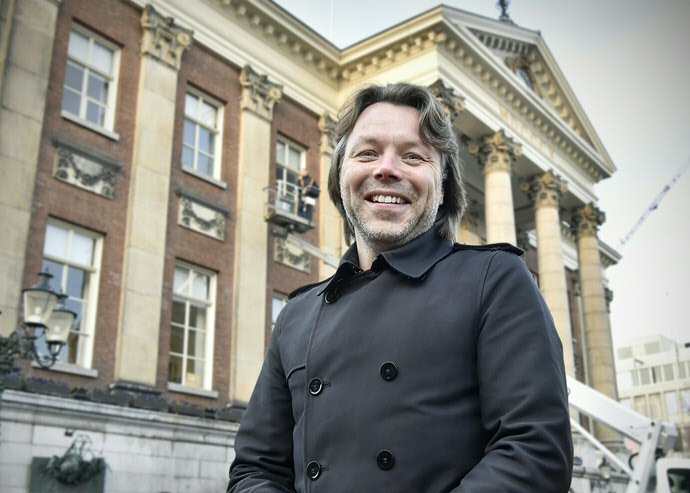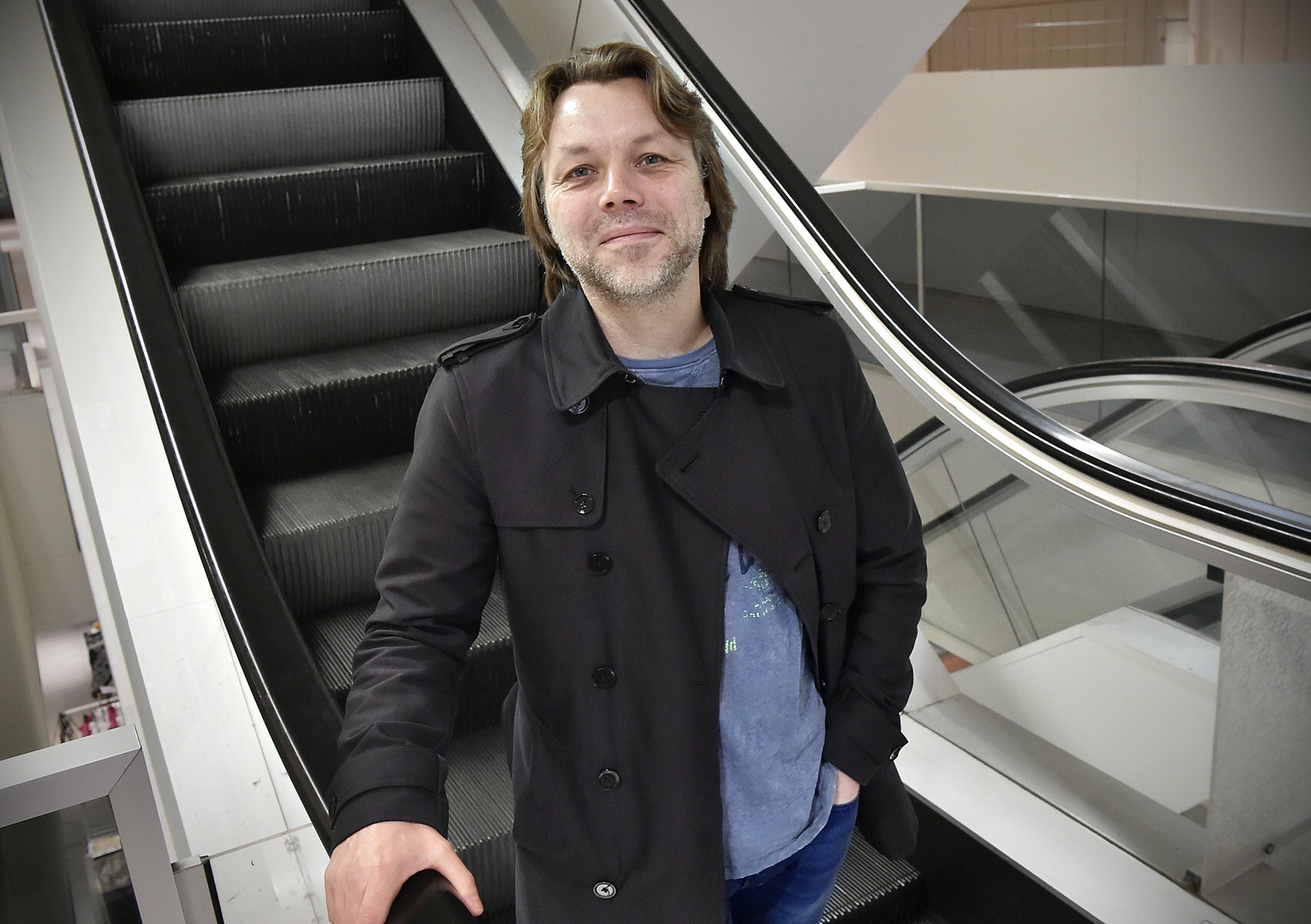‘Faulty escalator leads to divided city’

Jacob Dijkstra, a sociologist at the UG, is concerned about developments in the city of Groningen. A city that, at first glance, is doing well. However, a closer look may reveal a divide opening up with on one side the prosperous inhabitants with a job, house, car and social network and on the other those who have none of the above and find it difficult to keep up.
Text: Martin Althof, Communication, UG / Photos: Elmer Spaargaren
According to Jacob Dijkstra, all cities work like an escalator. They give people a huge range of options that allow them to develop and to get ahead. He believes that Groningen’s escalator, like the one in many other Dutch cities, may be on the blink. The top floors are a great place to hang out. There, it’s one big party. But people get left behind in the basement and can’t move any further. In short, a divide is looming between ‘rich’ and ‘poor’. It’s a development that politicians should be worried about.
Voters with lower education level stay at home
In November, municipal elections were held in Groningen. Friend and foe agree that the SP is the party that stands up for those on the lowest incomes, those at the bottom of society. But the SP lost a seat this time, and at 44% the turnout was low. Potential SP voters in particular stayed at home. Mobilizing voters with lower levels of education is always a problem. Dijkstra: ‘People with a higher level of education are more interested in politics. They discuss it with others, and they’ve learnt from their parents and in their education that voting is a citizen’s duty and that it feels wrong not to vote. They are also part of social networks in which it’s normal to vote and you get a rap on the knuckles if you don’t.’
‘Participation elite’
There has been no lack of attempts to involve as many people as possible in decision-making and to allow them to participate in the planning of their own neighbourhood – also in Groningen. Dijkstra: ‘In Groningen, we’ve got G1000 and G100. With G100, in the Oranjebuurt or Korrewegwijk neighbourhoods for example, people come together to talk about how to make their neighbourhood a more pleasant place to live. Good initiatives. At the same time, however, it is the ‘participation elite’ that visits such meetings: articulate people whose actions come from a kind of enlightened sense of self-interest.’

Procedural justice
Dijkstra doesn’t think it is a good idea to make decision-making even more ‘local’: ‘Leaving it up to the residents to decide about their neighbourhood also increases the chances of interpersonal conflicts. What is more, the decision-making has to be on a very small scale if the individual voter is to have a visible effect on the result. And I think that is what leads many non-voters to stay at home: why should I make the effort to vote if my vote hardly counts anyway? People need a lot of clarity. Procedural justice is essential here. How was a decision reached? What were the considerations? Explanations and motivations are important. If that is done carefully, people are much more likely to accept decisions. But there will always be tension between efficient decision-making and involving people in the process. The concept of ‘liquid democracy’ may present new opportunities. Here individual voters can decide whether they vote themselves or delegate their vote to a representative who votes on their behalf. For instance, someone who understands a complex dossier.’
Duty to vote
Dijkstra admits that, in a sense, voting is not very rational. After all, you don’t really make a difference as an individual. ‘If you do think that, you’re fooling yourself. But sometimes you have to do that to achieve something: maintaining our democratic system, for instance. After all, no one wants it not to be possible to vote at all. Total indifference leads to dictatorship. Our democracy, with all its problems, really is better than the alternative. That’s why I want people to be made more aware of our duty to vote, in our upbringing and in our education system.’
Too optimistic about ‘participation society’
The term ‘participation society’ cropped up in the King’s Speech on Budget Day (Prince’s Day) in 2013. It means citizens should do more themselves. Among others, the national knowledge institute Movisie concluded last year that the participation society was elite in nature. It is mainly white people with a high level of education who start a care cooperative or build a care home for their parents. This, says Movisie, could cause a divide in society. On the one hand, there is an elite that knows its way around and is good at getting things done. On the other, there is a class of people with a lower level of education, migrants and other vulnerable groups who are unable to do this. Jacob Dijkstra supports this analysis: ‘Isn’t the participation society nothing more than a rhetorical trick that means, “you’re on your own, mate”? People are increasingly being left to their own devices. On one side of the divide there are those with a higher level of education and a good income and a wide social network; on the other there are those with a lower level of education who don’t have all of this. I would venture to say that the concept of the participation society increases the divide in society: those who most need support often have fewest resources in their social network. Optimism about the participation society is therefore a form of wishful thinking. The government can’t afford to rest on its laurels but should actively seek out the problems in the neighbourhoods. It should also make use of the members of the community who do have a high level of education – for instance a Turkish student who is very familiar with his own community – or the thriving community centres that are open to all, where anyone can go with their problems and questions. That will stop the divide from growing.’
More news
-
03 February 2026
‘Such willpower’
-
20 January 2026
Alcohol, texting, and e-bikes
-
13 January 2026
Lonneke Lenferink joins The Young Academy
